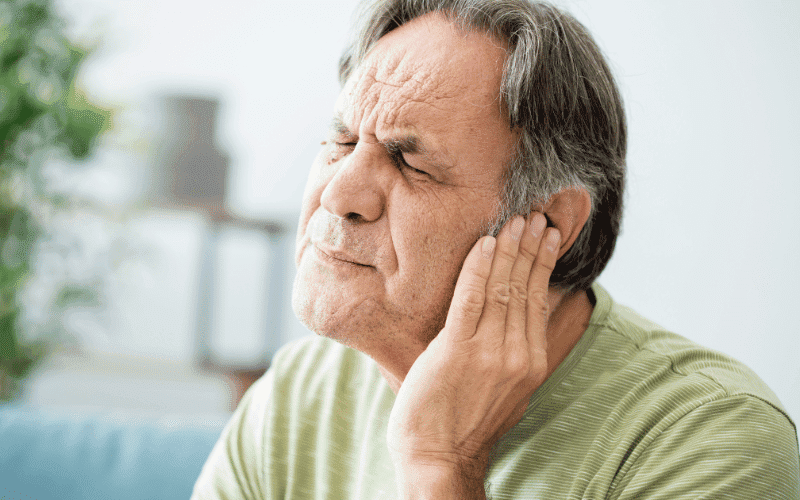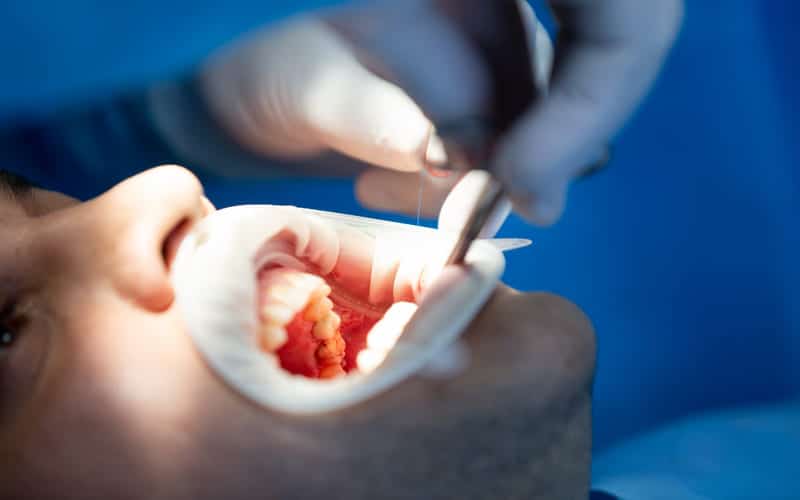
How Painful is Tooth Extraction Without Anesthesia?
One typical dental operation that can raise serious pain concerns is tooth extraction. Understanding how painful this process can be without anesthesia is crucial for those facing the procedure. An essential component of dental care is pain management, and being prepared will help you make wise treatment options.
This blog will explore the pain associated with tooth extraction without anesthesia, providing insights into the procedure and its impacts.
What is Tooth Extraction?
The process of taking a tooth out of its bone socket is called extraction. It is typically performed by a dentist or oral surgeon. This procedure is necessary for various reasons, including severe tooth decay, advanced gum disease, or overcrowding of teeth.
In certain cases, extractions are also necessary to remove teeth that are too broken or damaged to be repaired or to make room for orthodontic therapy.
Extractions can be classified into two types: simple and surgical. A simple extraction involves removing a visible tooth using specialized instruments.
On the other hand, a surgical extraction is a more involved procedure that includes extracting a tooth that is fractured below the gum line or has not fully erupted. The patient’s general health and the tooth’s condition are taken into consideration when making this selection.
Role of Anesthesia in Tooth Extraction
Anesthesia plays a crucial role in making tooth extraction more comfortable. Local anesthesia is the most common type used, which numbs the specific area where the extraction will take place. This prevents pain during the procedure while the patient remains awake.
There are several types of anesthesia used in dental procedures:
Local Anesthesia: This numbs the specific tooth and surrounding area. It is the most common type for routine extractions.
Sedation Anesthesia: This helps to relax the patient and may be used for more complex extractions. It can be administered orally or through an intravenous (IV) drip.
General Anesthesia: This usually applies to complicated surgeries or patients with extreme anxiety, as it leaves the patient totally unconscious.
The intricacy of the treatment and the patient’s comfort level are taken into consideration while selecting an anesthetic kind.
Pain Experience Without Anesthesia
Experiencing a tooth extraction without anesthesia is generally avoided due to the intense discomfort it can cause. Without the numbing effects of anesthesia, patients feel the full spectrum of sensations during the procedure, including both pressure and pain.
During a tooth extraction, the dentist or oral surgeon uses specialized tools to loosen the tooth from its socket. This process involves applying significant pressure to the tooth and surrounding tissues.
Without anesthesia, every push, pull, and twist is fully felt. The tooth, anchored deeply in the jawbone, requires considerable force to be removed, which can lead to a sensation of intense pressure. This pressure, combined with the movements of the extraction tools, can cause severe discomfort.
Several factors influence the level of pain encountered during an extraction without anesthesia:
Tooth Location: The location of the tooth significantly impacts the pain felt during the extraction. For instance, molars, especially those with multiple roots, are more challenging to extract compared to incisors. Molars are deeply rooted and may require more forceful movements and manipulation, which increases pain.
On the other hand, a simple extraction of a front tooth is generally less painful but still uncomfortable without anesthesia.
Tooth Condition: The condition of the tooth also plays a role. A tooth that is decayed, broken, or severely damaged may be more difficult to remove, leading to a more painful experience.
In such cases, the dentist might need to work around broken pieces or deal with compromised surrounding tissue, which can enhance discomfort.
Patient’s Pain Threshold: Pain tolerance varies from person to person. Some individuals may experience pain more acutely due to a lower pain threshold or heightened sensitivity.
Psychological factors, such as anxiety or fear of the procedure, can also amplify the perception of pain, making it seem more intense.
Complexity of the Procedure: Simple extractions, where the tooth is fully visible and accessible, are typically less painful than surgical extractions. Surgical extractions involve making incisions in the gum and possibly removing bone to access the tooth, increasing the complexity and potential for pain.
Without anesthesia, the discomfort from such procedures can be considerable.
Overall, undergoing a tooth extraction without anesthesia can be a distressing experience. The combination of direct pain from the procedure and the body’s natural response to injury makes the experience particularly unpleasant. For this reason, anesthesia is highly recommended to manage pain and ensure patient comfort during dental extractions.
Physiological Aspects of Pain
Pain is perceived through a complex process involving the nervous system. During a tooth extraction, sensory nerves in the affected area transmit pain signals to the brain. These nerves are responsible for detecting and relaying pain sensations.
When a tooth is extracted, the surrounding tissues, including the gums and bone, are manipulated, which can cause significant pain. Anesthesia works by blocking the nerve signals in the area, preventing these sensations from reaching the brain.
Without anesthesia, the body’s pain receptors are fully active, resulting in an intense experience of pain. The extraction process involves the application of pressure and force, which can exacerbate the discomfort as these stimuli are not mitigated by numbing agents.
Psychological Impact
Anticipation and anxiety can significantly affect pain perception. The fear of pain before a dental procedure often amplifies the actual experience of pain. This psychological aspect can make the procedure seem more painful than it might be if the patient were calm and relaxed.
Mental stress can heighten the sensation of physical pain, making it feel more intense. Addressing anxiety and preparing mentally can help mitigate some of the perceived pain, though it is no substitute for effective pain management through anesthesia.
Tooth extraction without anesthesia can be extremely painful due to the direct stimulation of nerve endings and the manipulation of surrounding tissues. While some patients may have a high pain tolerance, the discomfort is generally significant. Anesthesia is crucial in managing pain and ensuring a more comfortable experience.
If you are facing a tooth extraction, it is essential to discuss pain management options with your dentist to ensure you are adequately prepared and informed. Seeking professional dental advice is the best way to manage and minimize pain effectively.



